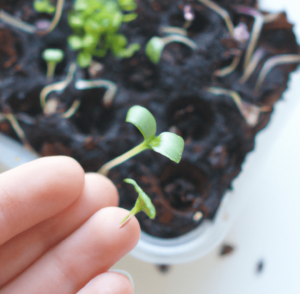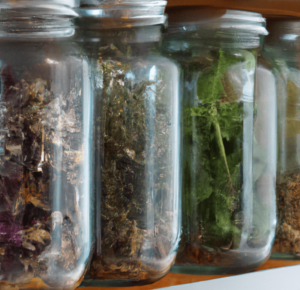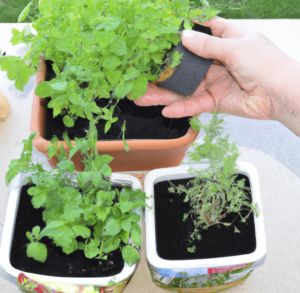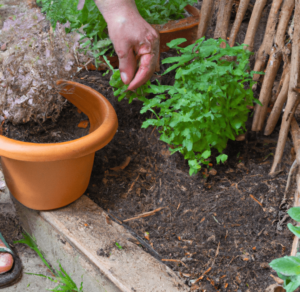At Your House Your Garden, we deliver the best tips and tricks on growing your very own healthy garden through our gardening guides. One of the most burning questions when it comes to gardening is the difference between mulch and wood chips. Gardeners and hobbyists have long debated over the merits and benefits of mulch and wood chips. Both additives consist of organic materials and help in improving soil quality, reducing weed growth, nourishing plant roots, and helping with soil compaction as well.
If you are new to gardening and are wondering which to pick for your garden, then this article offers detailed information including advantages and disadvantages of each. You can also learn how to mulch garden, and information about the lifespan of different mulches, as well as, how it can be used to prevent slugs and other pests from invading your precious plants. Be it organic mulch or fresh wood chips, there is a use for both and we are here to make the decision easier for you.
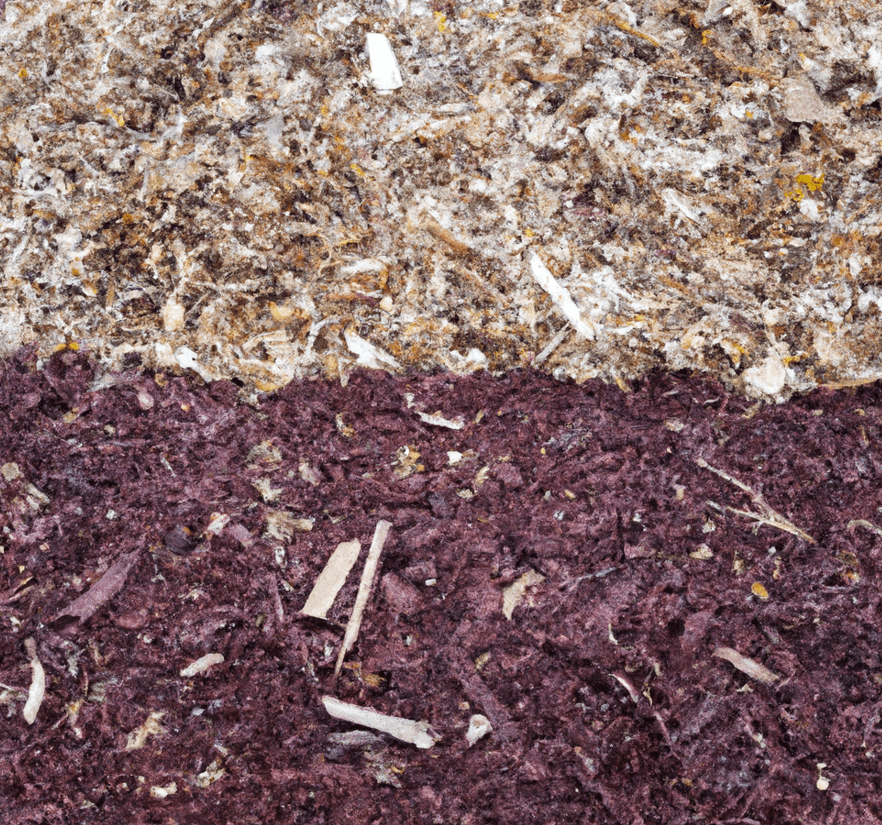
Mulch vs Wood Chips
When it comes down to it, the most important and crucial difference between mulch and wood chips is that the former is made from different materials including wood bark; whereas the latter is always made from tree trunk and tree interior. Additionally, this also contributes to the difference of texture between the two. Wood chip mulch is much softer.
Difference Between Shredded Mulch and Wood Chips
Wood chips such as green wood chips, pine bark, pine trees, etc., are natural whereas shredded wood mulch is usually synthetic in its make. However, this does not mean that it doesn’t contain useful, organic substances.
Since wood chips are made of shredded tree interior, they are completely natural. On the other hand, shredded mulch is made with byproducts in the processing of other wood products such as paper or even furniture. There are a variety of other differences as well which we will discuss below.
1. Toxicity Levels
Mulch may contain certain toxic components which aren’t always the safest for yourself, your plans, or animals. This is because it is made using byproducts which may contain chemicals of a certain variety that are unsafe for vegetation.
Polishes and dyes are some such examples. Dyed wood can be quite toxic if it seeps into your plants or is consumed by your pets. It may cause your flower beds and other plant species to rot and die.
Using organic wood chips instead is a far better option as it maintains soil temperature and protects your garden bed against rot, mold, or other forms of diseases. Thanks to its chemical diversity, wood chip mulch makes great food for your plants and does not leak chemicals that could otherwise harm them or any pets you have.
2. Difference in Texture
There is a stark difference in the texture of both wood chips and shredded mulch as well. The bits and chunks used in the making of wood chips are far larger than those used in shredded mulch. These chunks are usually 4 inches long and 2-3 inches wide, whereas the ones used for shredded wood mulch are 2 inches long and 1-2 inches wide.
Since wood chips consist of larger and longer wood chunks, they are better at keeping your soil well-drained and also retaining moisture. Shredded mulch decomposes faster and absorbs less water compared to wood chip mulch.

The Different Uses of Mulch
The most important use and advantage of mulch is its ability to add nutrients to the soil, improve its quality, and retain moisture necessary for healthy plant growth. To know more about what mulch can be used for and how it is beneficial for your garden, keep on reading.
1. Moisture Retention
Why exactly do you need to cover your garden soil? If it is for the purpose of retaining moisture, then using premium quality mulch is a far better option. Mulch is known to give an even and smoother coverage so your soil and your seedlings are not exposed directly to the burning sun. The better the coverage and protection against direct sunlight and wind, the better the moisture retention. This also protects and nourishes the roots of your plants.
Unfortunately, mulch isn’t the best option for areas where there is heavy and torrential rain, or floods. Since mulch retains moisture, it can cause water logging which may lead to your plants rotting and dying. Water logging can severely damage the root systems of any plant. Therefore, mulch is a better option if your soil requires constant hydration.
2. Controlling Excessive Weed Growth
An excellent way to control weed growth in your garden is by adding a bark mulch layer in the flower bed. These chunks will keep the sunlight from reaching the weeds surrounding your plants, thereby reducing its growth significantly.
3. Better Durability
Wood bark mulch from pine needles, pine bark nuggets, and other bark mulches can be kept for approximately 10 years, which is far longer than the 5 year time period of wood chips. This is especially useful if you need bark mulch cover that will stay intact for longer. On the other hand, wood chips are notorious for producing toxicity in the long run which can poison and kill your plants.
4. Better Soil Quality and Nutrition
This type of mulch greatly enhances the quality and nutritional value of your soil. Since bark decomposes much faster, it can feed your soil and your young plants quicker, making them richer. This type of mulch is also far better suited for gardening robust plants or sturdy trees.
Mulch and its Uses – Summary
By definition, mulch is a substance that can be sprinkled or layered over your soil so your plants can grow through it while the mulch covers all other exposed ends. This greatly assists to retain soil moisture by reducing water evaporation, stabilizing soil quality, texture, and structure as it combats any signs of soil erosion or soil compaction.
You can find organic or inorganic mulch. The former is usually in the form of a compost consisting of wood mulch, leaves, pine bark and needles, coffee grounds, hardwood material, etc. The latter usually includes rubber tire remnants, gravel, plastic sheeting, etc.
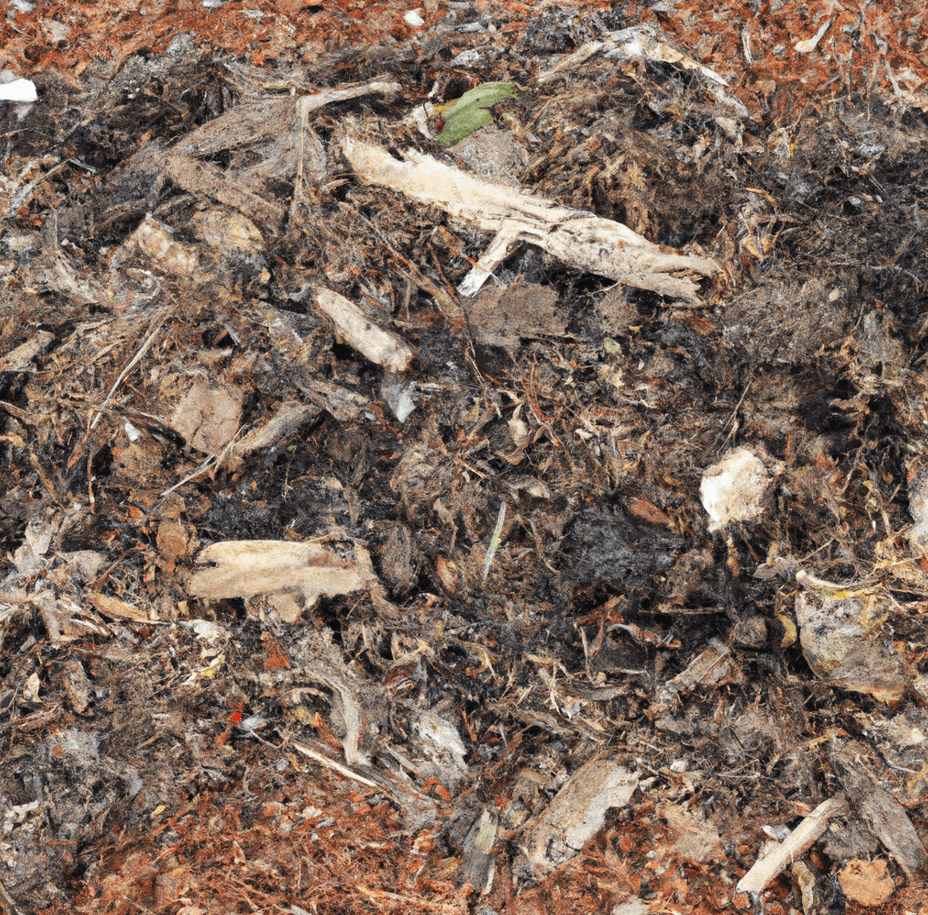
The Different Uses of Wood Chips
Carbon can enhance your plant’s growth, quality, and overall health and respiration. Wood chips ensure that your vegetation is infused with plenty of carbon. As it is natural and organic, wood chips are also a safer option than other forms of inorganic mulches.
If you are curious about the uses and many benefits of wood chips, then we have outlined a list for you below:
1. Excellent Source of Carbon
As mentioned above, plants and other forms of vegetation thrive when they feed on carbon and wood chips are an excellent source for it. You can use wood chips to top the content of elements in your soil and this can help your plants grow sturdier and stronger. However, if you are looking for an equal balance between carbon and nitrogen instead, then it is better to pick mulch as a topping instead.
2. Softer Texture
Wood chips provide a denser and softer topping for your soil. This covering can be quite beneficial for flower beds.
3. Better Coverage
Wood chips provide much better coverage compared to mulches as they are bulkier and denser. This helps your garden beds look neater. Wood chips are more dense than any form of mulch which also helps keep your soil well drained.
4. Miscellaneous Benefits
There are several benefits of using wood chips and topping for your soil. If you are planting perennials, trees, etc., then wood chips are more useful. Landscaping projects will also benefit from wood chips as it helps to maintain a steady level of moisture in your soil without risk of weed growth, and it also creates an even, neat layer on your garden bed, thus improving its appearance.
Thanks to their dense texture, wood chips are far more even and work great on sidewalks, paths, etc. These can be used to reduce any risks of soil erosion as well.

Wood Chips and its Uses – Summary
Unlike mulches, wood chips are more organic. With their bulkier and denser properties, they ensure that your soil is protected from direct sunlight, hence reducing the risk of invasive weeds. More importantly, wood chips are an excellent way to retain moisture in your soil without having it waterlogged or flooded, resulting in your plants dying. Additionally, wood chips are a great source of carbon for your plants and it helps them grow stronger.
Even layers of wood chips can be spread over pathways, sidewalks, playgrounds, etc., as it is not rough.
Frequently Asked Questions
Is wood chip mulch better than bark mulch?
Yes. Wood chip mulch is better than bark mulch. This is because bark mulch can cause issues since it contains natural waxes which can get in the way of water absorption and release. On the other hand, wood chip mulch consist of inner wood which works excellent when absorbing and retaining moisture.
What are 5 advantages of mulching?
The 5 advantages of mulches include retaining soil moisture, preventing your soil from eroding, controlling insects and other pests, maintaining optimal levels of nutrients in the soil, and controlling excessive weed growth.
How long does it take arborist chips to decompose?
Aborist wood chip mulch can take up to 6 months to decompose.


